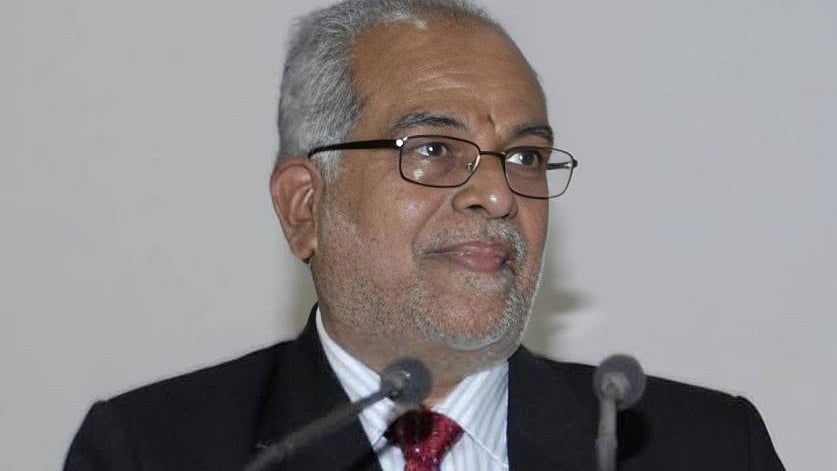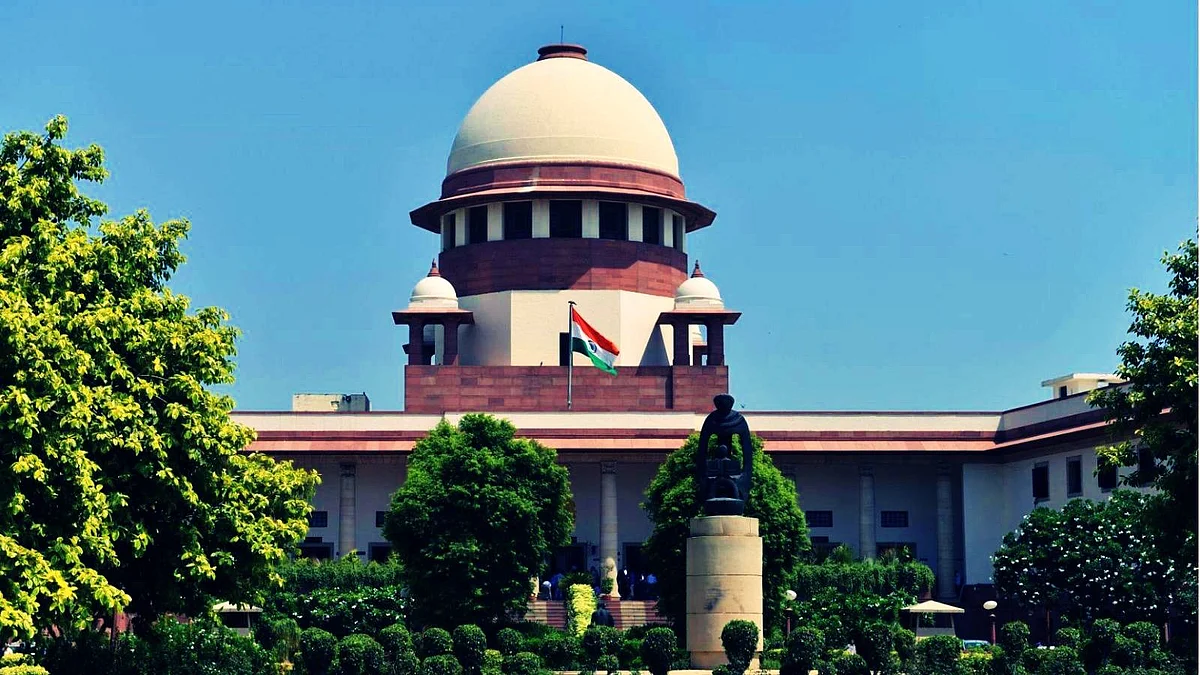One cannot be sure of such things, but to venture a guess perhaps it was a sunny March day in 2019 at Ranchi, or it was during the turmoil of the farmers’ protests, or perhaps when a crowd of fans decided to shout politically motivated sloganeering of Jai Shri Ram to a Muslim cricketer, or perhaps it was as recent as the same crowd at the same stadium doing the same thing to a Pakistani cricketer who had committed the crime of playing for his country, or perhaps it was not an event at all but a general series of cumulative moments all following one after another that at some unknown, unrecognised point made a 30-something cricket romantic turn into a stoic spectator who was unmoved and unmoored by the rising and falling fortunes of a team that he had attached his sense of self and identity to.
Things one is sure of when it comes to loving this sport is that this same cynic, as a 10-year-old boy in 1996, bawled when his team lost in a sandpit at Eden Gardens; or a young teenager, a few years later, who had recently fallen in love with the high backlift of a swashbuckling cricketer of Najafgarh, could not help but hope that his idols would get one over the all-conquering mighty Aussies in 2003; or as a young engineering student he was running across the crowded roads of a nameless city in Madhya Pradesh shouting “India... India!” as if his heroes would hear him in Johannesburg; or even a graduate who’s all set to move to the US cherishing finally that dream of winning that elusive World Cup in 2011.
One cannot be sure of most such things, but what one can be sure of is that it happened. At some point, much like the memory of an old love that had lived beyond its sell-by date or a cherished toy from childhood, that boy forgot what this team, these men and their fortunes meant for him. Now that does happen with age, for age allows you that serenity and that gentle view into the world, that all those who walk into the field are trying as hard and want is as much and the pleasure of watching them execute their skills would be that much more beautiful if you let go of your partisan inclinations; and that is all true, age has helped one temper their emotions for sure. And so, for that boy at some point it became about following the sport for the performances of all who play it across nation states and teams and how well they could execute their skills.
But there is something beyond that — because however much one wants to deny it, much like how one can never forget the joy of hearing a random stranger in a random city far from home speak in the language of your parents, one can also never really give up on the quiet joy and contentment of watching and living through their team win something. And so you give into that vicarious joy, but then suddenly as you are just getting into that mildly vulgar yet profusely pleasurable joy of cheering for a team against another, out of nowhere you watch a young man run onto the ground, a ground named after the man who is not there yet but is surely keeping a close eye; the young man shouts for the thousand of Palestinians screaming for their freedom and you are jolted back into your emotional black hole where you again go back to following the game on your television for nothing else but the skills at display and nothing more than a lugubrious stillness.
One thing that has to be said is that they deserved it as much as any Indian team ever has, and that they did not get it is a matter of shame. But having said that, it does not hurt; in fact it feels like nothing; one almost feels that if there is a god up there, a god who is not partisan or nationalist or of any religion but a god who cares for all equally, that god made sure that much like in Berlin of 1936, this moment was not converted into an act of propaganda by a regime that has the ability to inflict wounds and make helpless all those countless who do not agree to its vision of how this country should look like, and in that sense it almost feels like the arc of the moral universe did bend toward what was just and righteous.
And even then, one does feel for these men, many of whom are now younger than you and yet who would probably never get another chance at making this happen for themselves and their team. One feels for them because there is no doubt that their skills are exemplary and their dedication to their art is something to admire.
But then you realise that a sport is a sport especially when many men and women — much like these exemplary young men — in Manipur are screaming and shouting to be heard or there is a collapsed tunnel where men living and breathing are counting seconds, and mountains fall into cities as the climate crisis hovers over us, and a state government bans halal products and people are stampeded over while trying to catch a train, or lynchings or riots or 80 crore of us made to rely on free rations provided by a government that in the same breath also shouts about being a superpower. Amidst all this one still feels for these men but maybe not as much as one should, definitely not as much as they deserve.
So, when did this happen? Perhaps it was one of those days that we just went over, or perhaps one is just lying about it and it has not really happened. With age comes the curious ability to believe that Sisyphus, despite his perpetual toil, wears a contented smile. Yet, it doesn't feel amiss; the game persists, an eternal dance where victors and vanquished swap roles, and new actors step onto the stage. There's no resentment for those who nurse heartbreak and sorrow.
For what is life if not an undulating landscape of emotions — the euphoria of triumph, the wounds of defeat? If solace must be offered, let it be whispered that nothing is permanent. Those who seek to impose order upon chaos are bound to fail. The world, in its melancholy and absurdity, swallows all, whether celebrants of victory, mourners of defeat, or the monarchs who delude themselves into thinking their reign will endure.
Thus, in cosmic design, it makes perfect sense that India couldn't cross the line. In the grand tapestry of existence, we leave Sisyphus at the base of the mountain! Always, one rediscovers one’s burden. A burden carried by a thousand voices invoking Ram not in praise but to instil fear. The burden of myriad media personas, sports bureaucrats, advertisers, and former cricketers attempting to diminish those who came to compete and conquer. And finally, the weight of a man presuming that with his name etched on the stadium and his authority imprinted on the nation, a glorious moment of crowning awaits him once more. Always, one rediscovers one’s burden.
To this writer, it seems just — that the universe, now without a master, appears neither sterile nor futile. Sisyphus, one must imagine, wears a contented smile, finding solace in the knowledge that the grand stadium in Stuttgart, once named Adolf-Hitler-Kampfbahn, now humbly answers to the meek Mercedes Benz Arena.
Raj Shekhar Sen is based out of San Francisco and works in the area of data privacy regulations. He also runs a podcast on politics called the Bharatiya Junta Podcast








.jpg)

